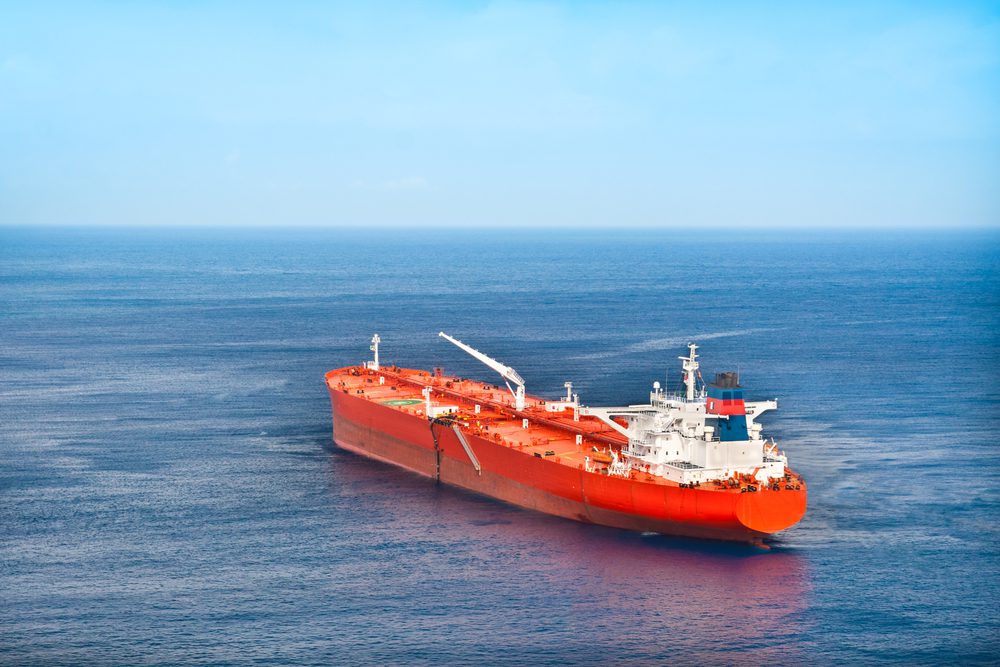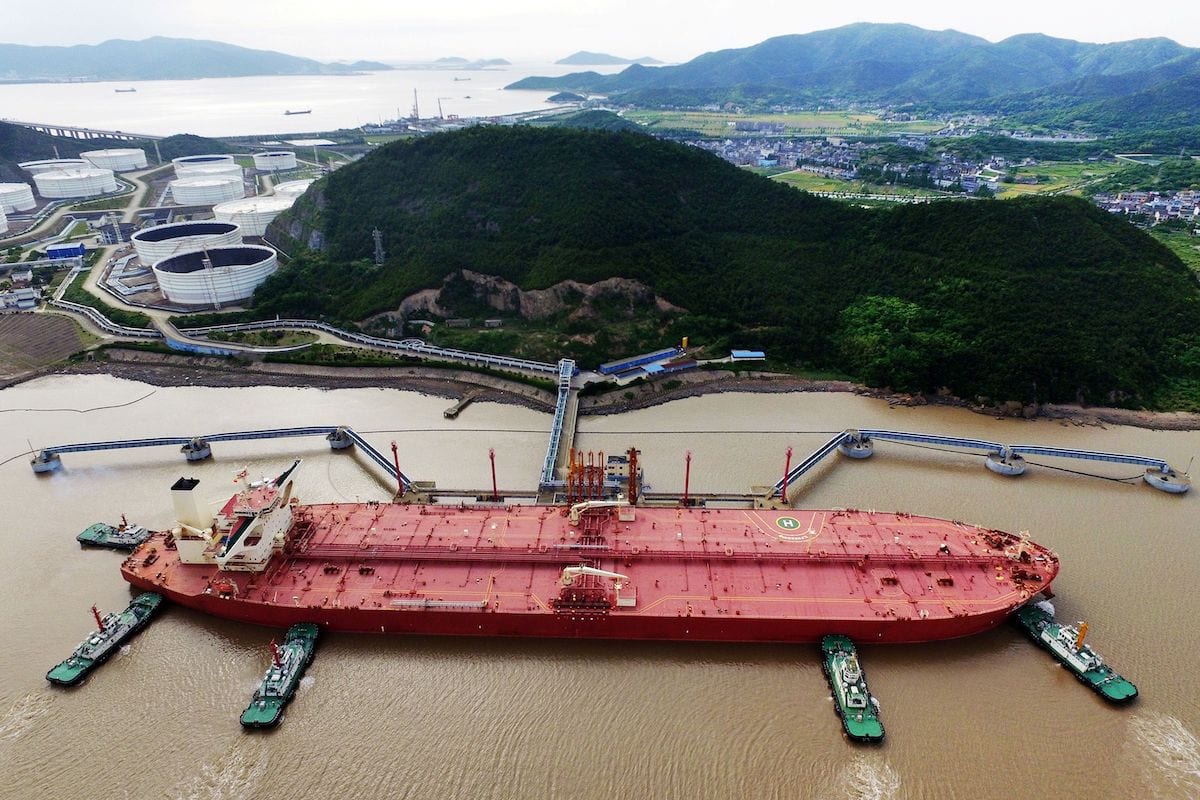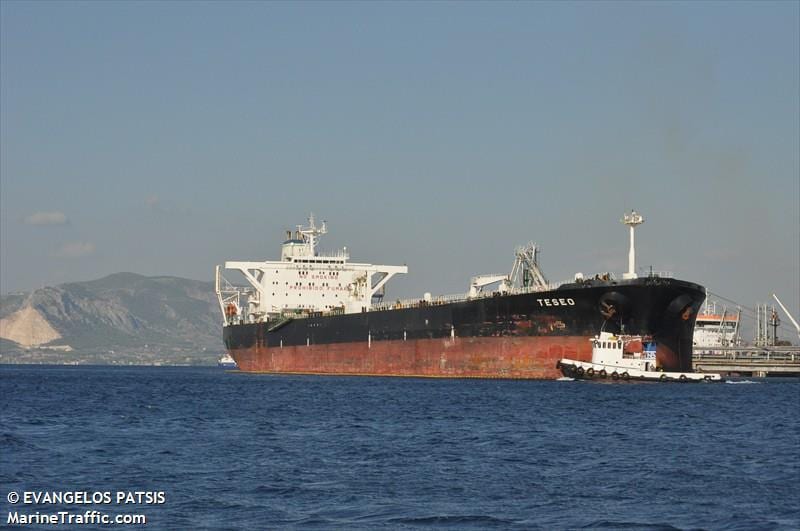Photo: By Matej Kastelic / Shutterstock
 By Kate Holton KNUTSFORD, England, March 23 (Reuters) – Julian Sarkar has spent more than 10 years and around 600,000 euros ($740,000) making his small British company compliant with strict European Union regulations to import chemicals into the bloc.
By Kate Holton KNUTSFORD, England, March 23 (Reuters) – Julian Sarkar has spent more than 10 years and around 600,000 euros ($740,000) making his small British company compliant with strict European Union regulations to import chemicals into the bloc.
Now, incensed by the government’s pursuit of what he sees as an extreme version of Brexit, he is shifting a third of his business into continental Europe, fearing that higher costs and bureaucracy will prove toxic for his firm over time.
“I despair,” said the 59-year-old, who will avoid UK ports when shipping goods from India and China into continental Europe with his firm Zanos. “Everything I’ve seen in terms of the new approach will involve additional cost and additional work.”
Zanos is one of thousands of British companies that could be stripped of the right to trade seamlessly in Europe after Brexit if a way cannot be found to keep Britain in or aligned to the regulatory system Reach that acts as a passport for chemicals.
At stake is not just the future of an 11-billion-pound industry and its thousands of British jobs, but also the other sectors it supplies, including autos, aerospace and pharmaceuticals.
The chemicals sector’s quandary is more acute than most industries’ because of its dense web of regulations, but it is also emblematic of problems facing several other trades that rely on some kind of “passporting” system to operate across the EU, like financial services and haulage.
Prime Minister Theresa May has said she wants Britain to remain under European oversight for certain sectors including chemicals but be allowed to diverge from the EU in others, a position dismissed as pure illusion by Brussels so far.
On top of the regulatory uncertainty, the prospect of tariffs or border delays remains while any Brexit deal may not come until late in the talks, leaving firms with little clarity.
As a result, the bigger chemical makers are preparing for all outcomes. Germany’s BASF, worth 76 billion euros, estimates that a British return to World Trade Organisation rules could cost it an additional 60 million euros a year.
“At the moment you really get the impression of two high-speed trains on a collision course with no constructive solution to be found,” BASF Chief Executive Kurt Bock said in February of his fears about tariffs. “Something must happen very quickly.”
‘THIS IS A BIG DEAL’
Of immediate concern is Reach, a regulatory regime so complex it has taken 11 years to be introduced. Designed to manage risk while protecting health and the environment, it operates across the 28 EU member states plus Norway, Iceland and Liechtenstein that make up the European Economic Area (EEA).
Standing for Registration, Evaluation, Authorisation and Restriction of Chemicals, Reach requires companies to register the substances they use, creating a vast central database that is managed by the European Chemicals Agency (ECHA) in Helsinki.
According to the ECHA, Britain becomes a “third country” after 2300 GMT on 29 March 2019, making Reach registrations held by British companies invalid. A transition deal, which was announced on Monday, should postpone that until the end of 2020, if a future trade deal with the EU is agreed before Brexit.
“This is a big deal,” said Elizabeth Shepherd, environment partner at corporate law firm Eversheds Sutherland who is facing mounting questions from clients. “If companies have to comply with two sets of rules then they run the risk of being less competitive.”
Zanos’ Sarkar said he decided to act after May said at the start of 2017 that Britain would leave the EU single market and customs union after Brexit.
May’s government argues that being outside the EU will give Britain the freedom to strike trade deals with faster-growing emerging markets, and that although the economy may suffer in the short term it will flourish later on.
But for now, Sarkar cannot see beyond the disruption.
Based in the leafy town of Knutsford, northern England, the 18-year-old company he founded sources, imports and distributes aromatic chemicals such as Benzyl Alcohol and Linalol, which go into cleaning sprays, shower gels, candles and other products.
It employs five people, has annual revenue of about 10 million pounds and holds around 10 Reach registrations.
In a bid to insulate as much of the business as he can, Sarkar has set up a company in Ireland to handle the compliance and transport of chemicals imported from Asia that do not need to go through Britain, around a third of his total business.
Hiring a qualified operative there will cost around 50,000 euros a year before other costs, Sarkar said, but he would rather take the hit now than become less competitive over time.
“We buy significant materials from China that are sold in Europe,” Sarkar said, clutching business plans for the new company. “The intention is that anything that doesn’t require UK input will not come here. We’ll just keep it out.”
For future British-EU trade, he expects costs and red tape to rise if Britain launches its own Reach system with its own regulator, forcing Zanos to comply with two systems at once.
That could also put some European companies off selling into Britain, work Zanos currently handles.
“My first preference would be to use Reach, to find some way to buy into Reach,” Sarkar said, sat in a small office on a business park 30 miles from a warehouse storing 150 palettes of chemicals. “Several hundred millions of pounds have been invested in this, so why do it again?”
CONTINGENCY PLANS
In an illustration of the size of the British chemicals sector, 6,625 of the 18,403 substances registered within Reach are registered in the United Kingdom, according to the ECHA.
Like so much of the preparation for Brexit, bigger companies with large legal teams and advisers are better placed to plan.
Once dominated by ICI, Britain’s biggest chemical names now include Johnson Matthey, Ineos, Croda and Synthomer.
Johnson Matthey, which moves more than 2 billion pounds of goods between Britain and the EU a year, and polymer supplier Synthomer told Reuters they were making contingency plans.
Companies are examining the location and size of their stocks and testing if they could supply customers and receive goods under all outcomes, including if no Brexit deal is struck.
But both said they expected the government to ultimately get around the politics and stay aligned with Reach.
“We need to be prepared for everything,” said Jane Toogood, the CEO of Johnson Matthey’s Efficient Natural Resources sector. “If we move away from this, you’re talking about rebasing everything, redoing the registrations. It’s sound, it’s robust, it’s taken years to agree, let’s stay convergent with it.”
One possible remedy would be for British manufacturers selling into the EEA to hire agents in the bloc, known as Only Representatives, to handle compliance, but this would incur extra costs.
A more comprehensive solution would be for Britain and the EU to agree “mutual recognition” – where Britain and Europe agree to achieve the same standards – but Michael Coxall of law firm Clifford Chance said that was untested and would require not just a recognition of standards but a whole machinery to oversee Britain’s access to EU data.
However the uncertainty of the situation has forced Sarkar, with fewer resources than the big players, to act now.
He does not much like Reach – he is a member of a “Reach self-help group” – but he would rather stick with the devil he knows than adapt to a new British system too.
“We’ve had zero information,” he said. “We’ve been told by the government this is where we are and this is where we would like to be. But the question is: what are they going to do?”
($1 = 0.8127 euros) (Additional reporting by Ludwig Burger in Frankfurt; Editing by Guy Faulconbridge and Pravin Char)
(c) Copyright Thomson Reuters 2018.
Editorial Standards · Corrections · About gCaptain
This article contains reporting from Reuters, published under license.

 Join The Club
Join The Club











